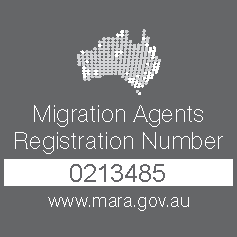One of the big changes to come out of the recent review of Australia’s Migration Program (Changes May 2023) was the announcement of the increase of the Temporary Skilled Migration Income Threshold (TSMIT). The TSMIT is the minimum wage payable to employer-sponsored visa holders.
From 1st July 2023, the Temporary Skilled Migration Income Threshold will increase from $53,900 to $70,000. New employer-sponsored nomination applications will need to meet this threshold or the annual market salary rate, whichever is higher.
This is the first increase in the TSMIT since 2013. With 90% of full-time jobs now paid more than the current TSMIT, authorities on the subject have argued this is where the Temporary Skilled Migration Income Threshold should have been had it has been properly indexed over the last 10 years. While the Labor Government has not yet committed to an annual review of the TSMIT in line with wage growth going forward, it is likely that they will implement a yearly assessment of the TSMIT. 
Organisations such as the Grattan Institute and the Australian Council of Trade Unions have welcomed this increase, arguing that the TSMIT was outdated.
A minimum wage increase TSMIT for migrants is a good thing, isn’t it?
While an increase in minimum wages for migrants can be considered a good thing, there are some issues.
This increase could hit some low-paid industries quite hard. Essentially, by raising the TSMIT, some employers would be expected to pay well above what a job is actually worth in order to employ an overseas worker to fill a job.
There are approximately 21,000 migrants on temporary skill shortage visas in low-paid professions such as cooks, chefs, printers, hairdressers, retail and hospitality managers, and some automotive and construction trades. These migrants are earning between $53,900 and $70,000. When it comes time to renew their visa, if their employers don’t increase their salary to meet the salary threshold of $70,000, they will have to leave Australia.
The hospitality industry relies heavily on overseas workers so it’s not surprising that restaurant owners around the country are reeling. Already hit hard by Covid-19, many have expressed worry over where to find the additional funds to hire overseas workers. Ordinarily, increases in business expenses are passed on to customers through pricing but many restaurant owners are concerned that this may not be possible. They are already feeling the pinch with reduced foot traffic as a result of the increase in the cost of living. If they were to increase prices to help earn funds to meet the rise in the TSMIT, they fear they may lose more customers.
‘The restaurant business is already under intense pressure after COVID. We have a labour shortage and inflation has cut footfall (number of diners) by at least 20 percent.’ – [1] Sunita Kumar, owner of Canberra’s Dana restaurant.
The increase in the Temporary Skilled Migrant Income Threshold will have an even bigger impact in rural and regional areas. It’s already hard enough for businesses in these areas to employ overseas workers let alone find an additional $16,100 for their wages.
At a basic level, an increase in the TSMIT means some employers either have to overpay an employee to fill a position or not employ an overseas worker at all which then leaves them with a staff shortage. The increase in the TSMIT is more expensive for employers and makes it more difficult for overseas employees to obtain a temporary skilled visa. It’s a no-win situation.
Employer-sponsored nomination applications lodged before 1st July 2023 are not subjected to the increase, however, visa renewals taking place on or after 1st July will require employers to meet this increase in the Temporary Skilled Migration Income Threshold.
To learn more about employer-sponsored visas, the Temporary Skilled Migrant Income Threshold, or any other aspect of migration, contact the Visa Solutions team.







